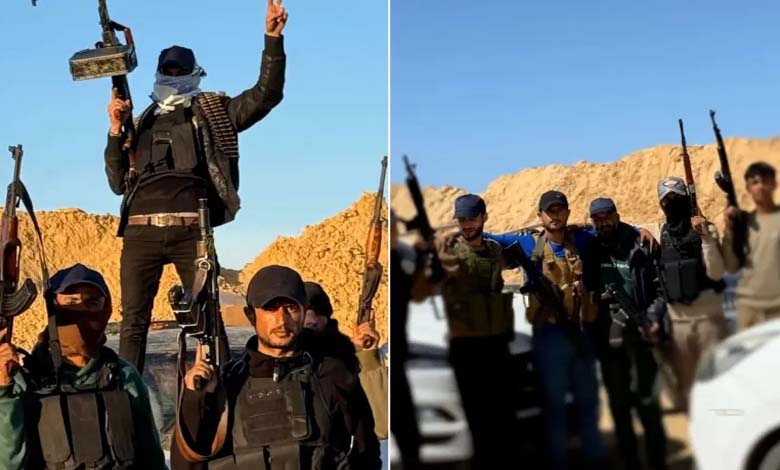Who Is the Yasser Abu Shabab Group Opposing Hamas in Gaza?

The Palestinian scene in the Gaza Strip has witnessed escalating security unrest following the rise of the “Yasser Abu Shabab” group, also known as the “Popular Forces.”
-
Disarming Hamas in Exchange for Political Participation: A New Gaza Ceasefire Proposal
-
Hamas Opens the Door to Exiting Power: A Tactical Move or Surrender?
This group is led by a young Palestinian from the Tarabin tribe in southern Gaza. His name has gained prominence recently amid the increasingly complex political and security situation in the enclave.
Born in December 1993, Yasser Abu Shabab has a history of arrests. He used the periods of absence caused by Israeli military operations to consolidate his influence in eastern Rafah, where he now controls large areas. However, his true goals and external affiliations remain shrouded in mystery.
Hamas directly accuses the group—calling it a “gang” collaborating with Israel—of attempting to undermine internal security through armed clashes and efforts to control the distribution of humanitarian aid.
-
Hamas to Release American Hostage After Direct Talks with Washington
-
March Missiles… Hamas Breaks the Heavy Silence with Weak Justifications
In contrast, Abu Shabab denies these allegations, claiming that his group protects civilians in the areas under its control, provides humanitarian assistance, and ensures safe passage for displaced people. In an audio message posted on the “Peace Relations Center” platform, he demanded that Hamas relinquish power, pointing to popular protests calling for the group’s removal from authority.
He also asserted that his group is funded by individual donations, that their weapons are “inherited” from the Tarabin tribe, and that they have no connections to foreign intelligence agencies.
-
Survey Reveals Scale of Discontent and Anger Towards Hamas in Gaza
-
Investigating Hamas: Signs of a New Mechanism to Deliver Aid to Gaza
The issue has sparked regional and international debate after reports, including one by The Washington Post, revealed that the United Nations had documented the group’s involvement in systematic looting of humanitarian aid. The group was previously known as the “Counter-Terrorism Unit” before being renamed the “Popular Forces” in May 2025.
On the Israeli side, public statements by Prime Minister Benjamin Netanyahu and Minister Avigdor Lieberman offered indirect support for the group, acknowledging that it had received military backing from the Israeli army during the war as part of efforts to undermine Hamas—remarks that have stirred significant controversy within Israel.
-
Hamas Insists on a Comprehensive Deal in Gaza: Stubbornness Dashes Truce Hopes
-
Can Gaza Overcome Hamas’s Heavy Legacy and the Long Shadow of Occupation?
The Palestinian Authority denies any coordination or contact with the group. Tribal elders and the Abu Shabab family issued a statement disowning their son and claiming that his forces operate “in coordination with the occupation.” Abu Shabab rejected the statement, calling it part of a media campaign aimed at undermining his grassroots movement against Hamas.
Amid these developments, the “Yasser Abu Shabab” group emerges as a new, complex player in Gaza’s security and political landscape, raising questions about its future impact on stability in the Strip, especially in light of internal divisions and foreign support.












